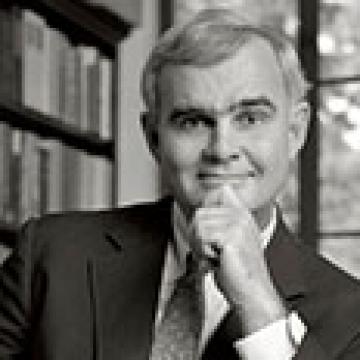James Buchanan: Campaigns and Elections
The Campaign and Election of 1856:
The Kansas-Nebraska Act had poisoned the careers of both men who had supported it—Franklin Pierce and Stephen Douglas: Douglas would be a serious contender for the Democratic nomination in 1856, with strong support from the South and the West, but he would face fierce opposition from the Northern wing of the party. Pierce, as the sitting President, would also have significant support for his renomination bid in the South and West. James Buchanan, however, had a record that perfectly positioned him for the office, and he entered the convention in Cincinnati that summer as the front-runner.
Hailing from a populous state as a longtime member of Congress and an envoy to Russia and England, Buchanan had many attractive political assets. In essence, Buchanan gave the delegates the kind of hope that seemed in very short supply during the tumultuous mid-1850s. A smooth, pleasantly dull conservative, he upset few people. Above all, Buchanan was from the North, yet he maintained ideological ties to the South—a "doughface" in the slang of the day. Buchanan forces quietly told the Douglas men that cooperation from the "Little Giant" would enhance his chances for 1860, and Douglas withdrew from the race. "Old Buck" got more ballots than any other candidate in the first round, and he clinched the Democratic nomination with the requisite two-thirds majority on the seventeenth ballot, an easy victory during that bitter era. John C. Breckinridge of Kentucky received the party's vice presidential nod.
The new Republican Party, meanwhile, chose famous explorer and California Senator John C. Frémont as their candidate. Frémont, with a marginal political career, offered fame and an almost invisible political record. A secretive, nativist third party called the Know-Nothings that attracted Americans opposed to immigration and Catholicism nominated former President Millard Fillmore as their candidate.
That election year, the debate over slavery seemed to break all restraints. In Kansas, political pillage and even murder became commonplace. Just one week before the Cincinnati convention, a young congressman from South Carolina whose elderly kinsman had been insulted by Massachusetts Senator Charles Sumner beat the Northerner nearly to death with a cane—right in the Senate chamber. The assailant was praised in Southern newspapers as a patriot. Sumner, badly injured, became a hero in the North. Two days later, a fanatical abolitionist named John Brown led a small band of followers into war-torn "Bleeding Kansas," seized men who favored the proslavery party, shot them through the head, and hacked them to bits with axes. While Brown and his fellow terrorists were lauded as heroes by many abolitionists in the North, Southerners were enraged. Even though Buchanan could claim high qualifications for the presidency, it soon became apparent that the slavery issue appeared almost intractable.
Buchanan chose the traditional approach to presidential campaigning: He made almost no appearances and said nothing to the press, leaving the fight to his followers, known as "Buchaneers." While Frémont did little active campaigning himself, an aspiring Republican from Illinois named Abraham Lincoln made dozens of speeches on Frémont's behalf.
Political dirty tricks were the norm. Democrats marked badges "Black Republican" depicting a runaway slave and made frequent jabs at Frémont's out-of-wedlock birth. Republicans countered with remarks about Buchanan's age and bachelorhood as well as the nickname "Ten-Cent Jimmy" after he unwisely said in public that he considered ten cents a day a fair wage for manual laborers. They also suggested that Buchanan's trademark tendency to tilt his head stemmed not from deficient eyesight but because he had once tried to hang himself.
But serious matters dominated: Buchanan asserted that individual states and territories should decide on their own the future of slavery within their borders. Frémont supporters countered that it was the duty of the federal government to prohibit it in all the territories of the United States. With such a national dialogue during the campaign, Buchanan could count on Southern votes while retaining some strength in the North—especially in the lower northern tier. The Know-Nothing Party then charged Frémont with being a Catholic, damaging his support. The upstart Know-Nothings ran surprisingly well and cut into Frémont's base. Finally, many voters were troubled by the charges of "Republican Radicalism" that Democrats had successfully pinned on the new party.
From looking at just the Electoral College returns, Buchanan seemed to have won comfortably that November; however, it was a victory that was far from easy. He carried only four of fourteen Northern states and won his critical home state of Pennsylvania narrowly. Suspicions were widespread that the winning margin had been oiled with illegal payoffs. In addition, because it was a three-way race, he won with less than half the popular vote. Buchanan could not claim anything close to a popular mandate in a nation sharply divided over slavery and sectional issues. His base of support was regional—he had won all of the Southern and border slave states with the exception of Maryland, which went to Fillmore. Only 1,200 voters in these states cast ballots for the Republican Frémont.
As much as he wanted to be President, Buchanan had deep reservations about taking the job. Shortly before the campaign, he wrote: "I had hoped for the nomination in 1844, again in 1848, and even in 1852, but now I would hesitate to take it. Before many years the abolitionists will bring war upon this land. It may come during the next presidential term."
